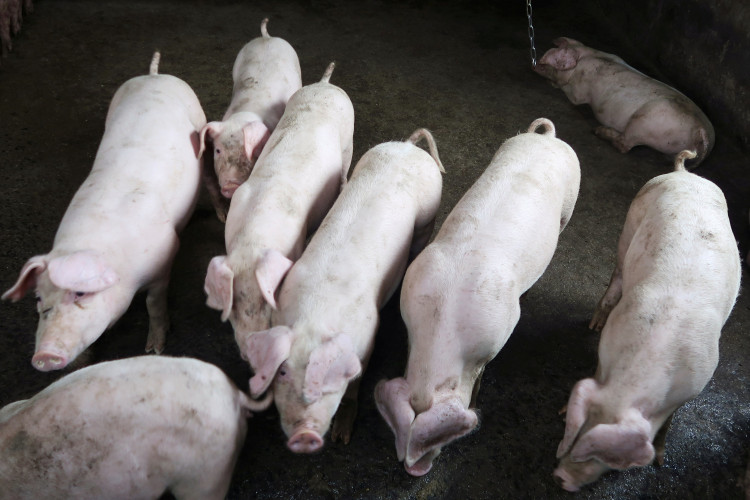Food prices in China for July hit 9.1 percent as the country battled the negative economic effects of the widespread outbreak of African swine fever. China is the largest consumer of pork in the world.
Pork prices are soaring to historically high levels, jumping 27% from July 2018, according to the National Bureau of Statistics (NBS). The unprecedented spread of the swine fever virus, which is also called "Pig Ebola," has wiped out more than a fourth of China's pig population.
"Surging pork prices continued to push up consumer price inflation," said Julian Evans-Pritchard, senior China economist at Capital Economics. But "weakening demand dragged producer price inflation into negative territory last month."
Fresh fruit prices rose at an even higher clip, surging 39.1% from a year ago. The country's fruit supply was diminished by severe storms and droughts that hurt crop production. Apple prices soared despite China being the world's largest producer and a major consumer of this popular fruit.
Prices of non-food items in July were 1.3% higher, said the NBS. The July inflation figures were substantially higher than the 8.3% year-on-year jump in June.
Inflation is expected to rise in August after China decided to stop buying imports of agricultural products from the U.S. in response to Trump's new tariff of 10% on $300 billion worth of Chinese goods on Sept. 1. These tariffs will mean the U.S. will now have taxed all of China's exports.
On the other hand, U.S. exports of fruits to China have been falling since 2018 with fresh fruit exports plummeting to $123 million from July 2018 to June 2019. This was an almost a 50% reduction from $239 million the previous year, according to the U.S. Department of Agriculture (USDA).
The USDA said the U.S. remains China's top Northern Hemisphere supplier of apples despite a 50% tariff on the import of the fruit.
China has also to cope with the effects of the Producer Price Index (PPI) falling 0.3% in July from a year ago compared to the 0.1% decline Reuters' analysts had expected. PPI is a key gauge of corporate profitability.
That is the first time China's PPI has fallen for three straight years, adding to concerns of deflationary risks in China.





